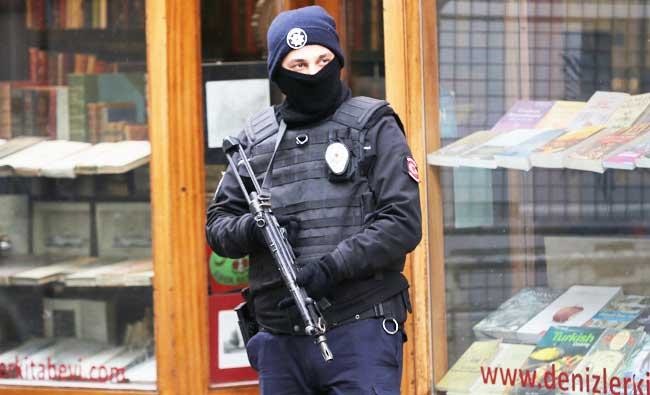ANKARA: Turkish President Recep Tayyip Erdogan’s blaming of the Netherlands for the 1995 Srebrenica massacre is the latest development in the row between the two countries.
“We know the Dutch from Srebrenica. We know how bad their characters and nature are,” Erdogan said.
Dutch Prime Minister Mark Rutte reacted by saying: “Erdogan continues to escalate the situation, and it is a repugnant historical falsehood.”
In July 1995, more than 8,000 Bosnian Muslims were slaughtered in Srebrenica town by Serbian soldiers.
Dutch soldiers failed to prevent the massacre by ceding control of a safe zone to Bosnian Serb forces.
In 2014, the Netherlands was found liable by a Dutch court over the killings of more than 300 Bosnian-Muslim men and boys, who were handed over by Dutch peacekeepers to Bosnian Serb forces.
Bedrana Kaletovic, a Bosnian woman living in Sarajevo who experienced the civil war, told Arab News that Dutch soldiers did not fulfill their obligation of protection.
However, she expressed displeasure at Bosnia and Herzegovina being dragged into the Turkish-Dutch row.
Earlier, Ankara banned the Dutch ambassador from entering Turkey and closed the country’s airspace to Dutch diplomats until the Netherlands fulfilled Turkish requests.
A possible Turkish withdrawal from the parliamentary Dutch-Turkish friendship group is also on the table. There are currently no economic or trade sanctions envisaged by Ankara.
Dr. Emre Erdogan, founder and director of the Infakto Research Workshop in Istanbul, said there is optimism that the row will remain limited to rhetoric and will not hurt bilateral ties.
“This optimism relies on an analysis of political leaders’ motivations, considering that it isn’t possible to list any realistic reason that could trigger the conflict,” he told Arab News, adding that the leaders of both countries are on slippery ground.
“There will be the constitutional referendum in Turkey in mid-April, which will define the future of the country. Erdogan, as the leader of the ‘yes’ camp, is highly involved in the electoral campaign and there’s no reason to expect his withdrawal. He acts as the spokesperson of the campaign here and abroad,” he said.
“Polls indicate that the outcome of the referendum is uncertain, and both camps have equal shares in the pie. Hence any vote is very valuable.”
Dr. Erdogan added that as with previous crises with other countries, this one provides an opportunity for Turkey’s ruling AK Party to consolidate its constituency.
For the government, the West plays a dual role of “the desired object of (Turkey’s) modernization attempts… and the scapegoat for every misfortune Turkey faces,” Dr. Erdogan said.
This scapegoating has increased in the last couple of years due to economic, political and military crises in Turkey, “especially after the coup attempt of July 15, when the EU didn’t present a clear position for a long time,” he added.
“The conflict between Turks and Dutch police is easy to sell as another battle between the Western and Islamic civilizations. Enriching this rhetoric with Srebrenica will enforce the Islamic tone of the frame.”
On Monday night, Turkey’s president slammed German Chancellor Angela Merkel for supporting the Netherlands, saying: “Shame on you Merkel. Why are you hiding terrorists in your country? Why are you not doing anything? Mrs.Merkel, you are supporting terrorists.” Merkel called the accusations “clearly absurd.”
The crisis has had repercussions for Turkey-EU relations. On Tuesday, Turkey’s Foreign Ministry in a statement criticized EU statements on the ongoing crisis between Turkey and EU member the Netherlands, saying: “The EU’s statements, instead of pressing countries who violate diplomatic agreements and laws, are calling on our country to refrain from excessive statements and actions, thus paving the way for xenophobia and anti-Turkish moves.”
On Monday, the EU high representative for foreign affairs and security policy, Federica Mogherini, and the EU’s enlargement commissioner, Johannes Hahn, co-authored a statement calling for a de-escalation of the crisis.
“Decisions with regard to the holding of meetings and rallies in member states are a matter for the member state concerned, in accordance with the applicable provisions of international and national law,” they added.
The EU has called on Turkey to renounce inflammatory rhetoric, but Ankara has a trump card.
Deputy Prime Minister Numan Kurtulmus, who is also the government’s chief spokesperson, said Ankara may reassess its deal with the EU regarding the management of migrant flows from Turkey to Europe.














